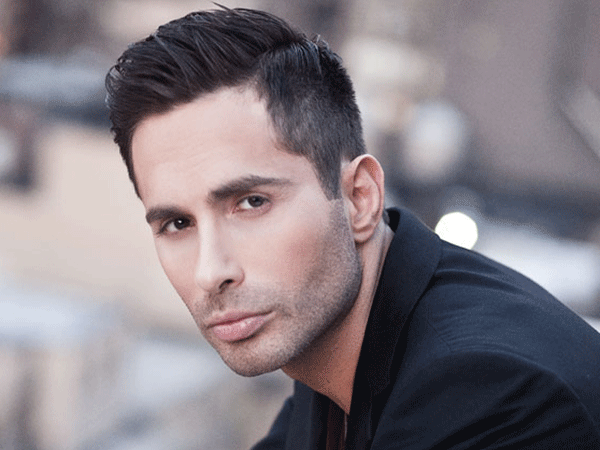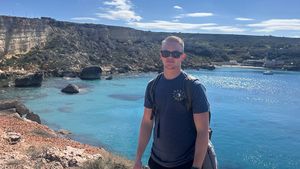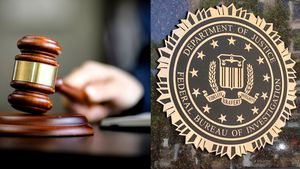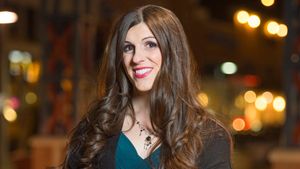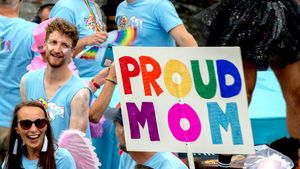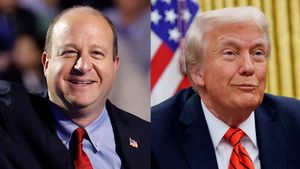George Orwell wrote 1984 in 1949. In 2015, his concept of Thought Police remains alive and well, including, it seems, in the gay community.
I've seen the Thought Police in action in recent weeks, after I was dragged into a controversy that had nothing to do with me. An article by Jay Michaelson in The Daily Beast implied I had attended a dinner for Texas Senator Ted Cruz, hosted by gay hotel owners Ian Reisner and Mati Weiderpass at their New York City apartment. For the record: I was not there, I detest Cruz and much of what he stands for, and although it's really nobody's business, I am not a Republican. (Also for the record: despite the headline on Michaelson's story, along with a reference in the article, the event was not a "benefit" or fundraiser for Cruz. That fabrication made many readers believe that any money spent at a hotel owned by the pair could end up helping to fund the Cruz candidacy).
I had never heard of Reisner and Weiderpass until the story broke, but since then, I've been closely following the subsequent boycott of their hotels and other businesses in Manhattan and on Fire Island.
Respected groups such as Broadway Cares have cancelled fundraisers at venues owned by the duo, and a Facebook page created to encourage the boycott has more than 11,000 "likes."
The men were forced to issue agonizing apologies that sounded more like they had killed someone than poured a glass of wine for the U.S. senator. But it's too late for these two; they've already been found guilty and sentenced by the Gay Court.
I find some deeply disturbing echoes here of my youth in the Soviet Union. I spent the first 23 years of my life in Russia, and I remember all too well what it was like to be bullied by both the totalitarian government, and by the cruel homophobic teenagers who ganged up on me. Friends and relatives of anyone considered a traitor had to denounce and ostracize those people, whose lives were often devastated because they didn't toe the party line.
So what treason did Reisner and Weiderpass commit? What did they do to merit being denounced by the gay community? They didn't raise any money for Cruz's presidential bid, they simply had dinner and a conversation with him. After decades of contributing to gay causes, should the community now demonize and destroy these two because they dared to speak with a politician who holds some views that many of us consider repugnant, but who also might make sense on other issues? Was the humiliation these businessmen endured in any way proportionate to their supposed crime?
This is political correctness run amuck, a kind of mob mentality so out of control that it was satirized on a recent episode of Modern Family. Gay couple Mitch and Cam were asked to boycott a favorite restaurant by friends who accused them of not standing up for political issues. After succumbing to the restaurant's delicious burgers, the couple bump into protestors outside who are chanting, "We're here, we're queer, we don't support corporations that contribute to Super Pacs which don't support health care coverage for same-sex partners!" It was a hilarious send-up of a deadly serious problem.
There are countless other examples in the LGBT community, ranging from RuPaul being bashed for using words such as "tranny" and "she-mail," to Shepard Smith ridiculed for daring to remain employed at Fox News. Who writes these rules, and why must we all fall into lockstep with them?
Well, one of the rule-writers is Michelangelo Signorile, who calls the Reisner-Weiderpass boycott a "watershed moment" and writes that "we must send a message to those among our own... and let them know that they too cannot support our enemies." This is like the Communist nonsense I grew up with: "Whoever is not with us is against us." Ted Cruz is against marriage equality, but he went to have dinner and a discussion with two gay businessmen. Should we intimidate and shame anyone who has any contact with him?
And what has all this hysteria achieved? Reisner and Weiderpass are as wealthy as ever, and the boycott has had little effect on their properties--but now, of course, we won't be able to raise funds at their venues, or publicly accept their donations. This uproar will prevent the LGBT community from having meaningful dialogue with conservatives for years to come. How is any of this good for us?
It also is important to point out that all this abuse is falling on the shoulders of two individuals. I have no problem with speaking out against true enemies, and even threatening boycotts; I've done it myself. In 2011, New York's LGBT Community Center wanted to rent space to anti-Semitic hate groups dedicated to the destruction of the state of Israel. I spearheaded the effort to keep those organizations from using the center to raise funds that would help reach their evil goal. I would have done the same had the Ku Klux Klan or the Westboro Baptish Church lunatics tried to rent space there. But I never would have singled out individuals and attempted to destroy their lives and livelihoods, despite my strong disagreement with their opinions.
I should also mention that every friend I have warned me against writing this article. They predicted my business will be boycotted, and I will personally be isolated. As you can see, I am ignoring that well-meaning advice. I refuse to be intimidated. I'm a gay Jew who survived the Communists. I certainly can survive LGBT political extremists.
I was at a party a few days ago attended by a number of prominent gay New Yorkers. One guest mentioned that he had not blocked Reisner and Weiderpass on Facebook, which resulted in a group of other guests shouting at him for failing to do so.
The ultimate irony here is that the gay community, which so prides itself on diversity, has hypocritically attacked anyone not fully in line with certain preconceived notions. I live in New York City, but some days I feel like I'm back in Moscow.
MICHAEL LUCAS is the creator of Lucas Entertainment, one of the largest studios producing all-male erotica, and the producer of two independent documentaries: Undressing Israel and Campaign of Hate. He lives in New York City. This essay is the opinion of the writer, and does not reflect the views or opinions of Out.
